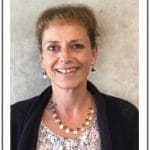PTSD Working Group Leadership







Work with us!
If you have questions regarding the PGC PTSD workgroup or projects that are currently being conducted, please contact the workgroup chairs.
For any questions or ideas related to research dissemination (e.g., via this webpage, social media, blogs, press outlets), please contact the workgroup outreach liaison.
If you have questions about how to access summary statistics or genotype-level data, or are interested to submit a secondary analysis proposal, please contact the workgroup data access committee representative.
About Us
Our History
The Psychiatric Genomics Consortium Posttraumatic Stress Disorder Working Group (PGC-PTSD) was founded in 2013 with the goal of conducting the first meta-analysis of genome-wide association study (GWAS) data for symptoms and diagnosis of PTSD. During that time, our membership has grown to include data from over 90 studies, with over 200 investigators from 12 countries. Working together we laid the groundwork for our first large-scale GWAS, contained over 3,000 cases and 17,000 controls (see PMC4538342) and followed this work with a multi-ethnic cohort including over 30,000 PTSD cases and 170,000 controls (see PMC6783435). Our most recent GWAS, including over 130,000 cases and 1 million controls of European Ancestry and over 13,000 cases and 40,000 controls of admixed ancestry, identified 95 genome-wide significant loci and 43 potential causal genes (see PMC11396662).
Our Motivation
Drs. Caroline Nievergelt, Karestan Koenen, Kerry Ressler, and Murray Stein currently chair our group. Our interdisciplinary membership includes graduate and postdoctoral trainees in psychiatric genetics as well as distinguished faculty in Psychology, Genetics, Biostatistics, Epidemiology, Psychiatry, and Medicine.
We are looking to increase the number of studies with genotype and clinical information on individuals with PTSD, especially those from underrepresented ancestry groups globally.
Our current objectives include:
1) Optimize the contribution of diverse ancestry groups in PGC-PTSD to identify causal variants and ensure that advances in our genetic understanding of PTSD extend across ancestral backgrounds.
2) Use post-GWAS approaches to identify functional consequences of variants identified in GWAS meta-analyses and prioritize variants, genes, networks and pathways for functional validation.
3) Use polygenic risk scores (PRS) of PTSD and PTSD components to provide insights into genetic architecture, relation to other disorders, traits and protective factors, and advance causal inference.
Get Involved!
We are also seeking to expand our studies by linking genetic data with copy number variations (CNVs), epigenetics, gene expression, brain imaging, physical health, psychophysiology, systems biology, Electronic Health Records (EHR), traumatic brain injury, substance use disorder, local ancestry and microbiome.
Members of the workgroup stay connected through regular conference calls the third Tuesdays of the month and in-person meetings three times a year at Academic conferences, usually the Society of Biological Psychiatry in the Spring and International Society for Traumatic Stress Studies and the World Congress of Psychiatric Genomics in the Fall.
If you are a member of the PTSD workgroup and have questions about a specific analysis or if you are interested in joining an ongoing project, please contact Dr. Caroline Nievergelt. If you are interested in learning about or joining our subgroups, please contact the subgroup directors.
Subgroup Directors:
Statistical analysis
EHR
Psychophysiology
Imaging
Physical Health
TBI
SUD
Ancestry and admixed populations
CNV
Sex-differences
Epigenetics
Systems Biology
Microbiome
PGC-PTSD related grants:
Parent grant
EWAS
The impact of traumatic stress on the methylome: implications for PTSD
MPI: Smith, Logue, Nievergelt, Uddin
06/01/2020 - 05/31/2025
Imaging/ENIGMA
Genomic Architecture of Functional Brain Networks in PTSD
MPI: Morey, Logue, Nievergelt
10/1/2022 - 9/30/2026
PTSD Africa
Genetics of PTSD in African Ancestry Populations: Enhancing discovery by addressing inequality
MPI: Koenen, Akena, Atwoli, Fatumo, Nievergelt
PTSD/SUD
Genetic Comorbidity of PTSD and Substance Use Disorders in Diverse Populations
MPI: Meyers, Amstadter
09/15/2023- 6/30/2028
Systems Biology
Next steps for PTSD genomics: from loci to function
MPI: Daskalakis, Nievergelt, Ressler
5/17/2024 - 3/31/2029
Major Accomplishments
Latest Results
Drs. Karestan Koenen, Caroline Nievergelt, Kerry Ressler, and Murray Stein currently chair our group. Our interdisciplinary membership includes graduate and postdoctoral trainees in psychiatric genetics as well as distinguished faculty in Psychology, Genetics, Biostatistics, Epidemiology, Psychiatry, and Medicine. Working together we have laid the groundwork for our first large-scale GWAS, which will contain over 3,000 cases and 17,000 controls (see PMC4538342) and recently followed this work with a multi-ethnic cohort including over 30,000 PTSD cases and 170,000 controls (see PMC6783435).
Publications
Duncan LE, Ratanatharathorn A, Aiello AE, et al. Largest GWAS of PTSD (N=20 070) yields genetic overlap with schizophrenia and sex differences in heritability. Mol Psychiatry. 2018;23(3):666‐673. doi:10.1038/mp.2017.77
Nievergelt CM, Maihofer AX, Klengel T, et al. International meta-analysis of PTSD genome-wide association studies identifies sex- and ancestry-specific genetic risk loci. Nat Commun. 2019;10(1):4558. Published 2019 Oct 8. doi:10.1038/s41467-019-12576-w
Nievergelt, C.M., Maihofer, A.X., Atkinson, E.G. et al. Genome-wide association analyses identify 95 risk loci and provide insights into the neurobiology of post-traumatic stress disorder. Nat Genet 56, 792–808 (2024). https://doi.org/10.1038/s41588-024-01707-9
Maihofer, A.X., Engchuan, W., Huguet, G. et al. Rare copy number variation in posttraumatic stress disorder. Mol Psychiatry 27, 5062–5069 (2022). https://doi.org/10.1038/s41380-022-01776-4







